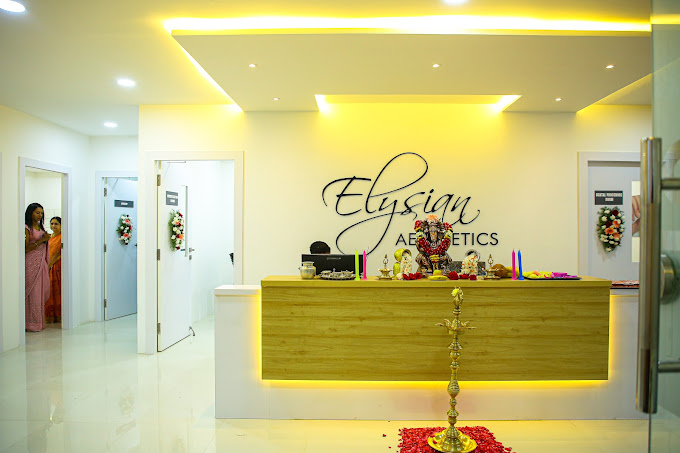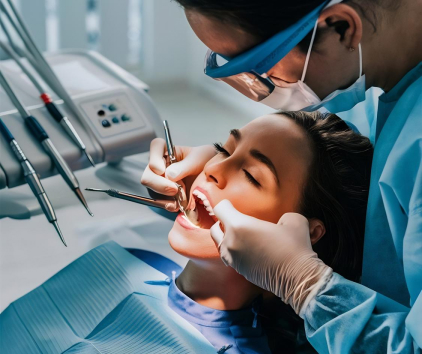

Schedule your initial consultation today and start your journey towards a pain-free, healthier smile. Contact us now!

Gum disease (Periodontitis or “Pyorrhea”) is the leading cause of tooth loss in adults. Traditionally, treating deep gum infection required painful surgeries with scalpels and stitches. Laser Flap Surgery changes everything.
At Elysian Dental, we use state-of-the-art dental lasers to remove infection and bacteria from deep inside the gum pockets. Because the laser seals blood vessels as it works, the procedure is minimally invasive, practically bloodless, and requires far fewer (if any) stitches than traditional surgery.
Less Pain: Lasers are gentle on the tissue, significantly reducing post-operative pain and swelling.
Faster Healing: The laser stimulates tissue regeneration, cutting healing time in half compared to conventional surgery.
Sterilization: The high-energy beam instantly kills 99.9% of bacteria in the gum pocket, preventing re-infection.
Save Loose Teeth: By cleaning the infection and stimulating bone growth, we can often tighten loose teeth that would otherwise need extraction.


Deep Cleaning: We remove the hard tartar (calculus) from the tooth roots using ultrasonic scalers.
Laser Decontamination: The laser fiber is inserted between the gum and tooth to vaporize inflamed tissue and bacteria.
Bone Grafting (If needed): If bone loss is severe, we may place bone graft material to help regenerate support.
Healing: The gums are allowed to heal naturally and tighten around the tooth.
It is far more comfortable than traditional surgery. Most patients report little to no discomfort during the procedure, which is done under local anesthesia.
Patients with moderate to severe gum disease—symptoms include bleeding gums, bad breath that won't go away, loose teeth, or receding gums.
While gums that have receded significantly may not grow back fully on their own, laser treatment stops them from receding further. For aesthetics, we can discuss gum grafting.
With laser therapy, most patients return to their normal routine within 24 hours. Complete tissue healing takes about 1-2 weeks.
Laser treatment is slightly more expensive than traditional cleaning but offers superior results and comfort. We believe saving your natural teeth is always a worthy investment.
At Elysian Dental Care, we envision a future where dental treatment is painless, precise, and reassuring. By combining advanced technology with expert care, we strive to deliver an exceptional experience that ensures 100% patient satisfaction and long-lasting smiles.
©Elysian Dental Care 2026 All right reserved.